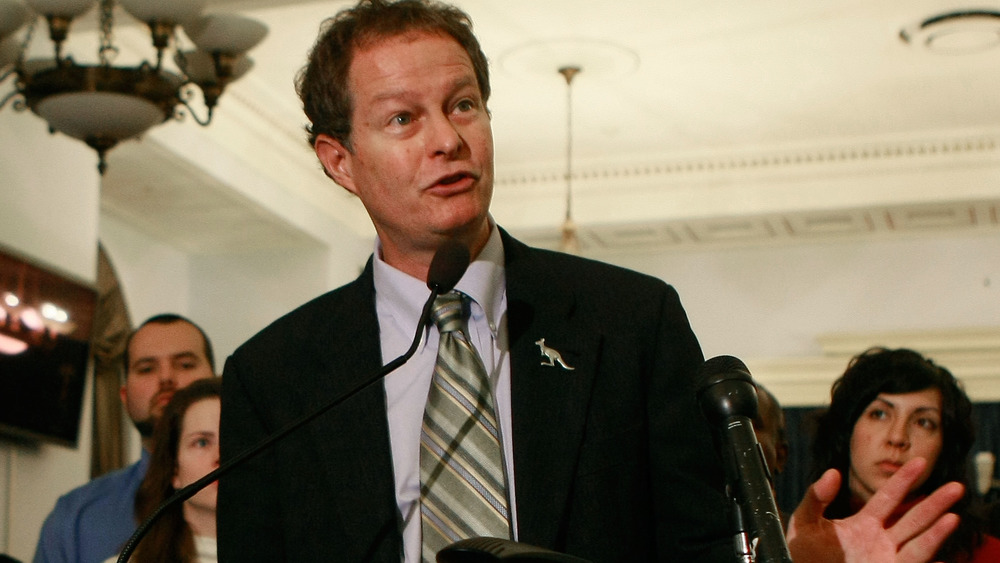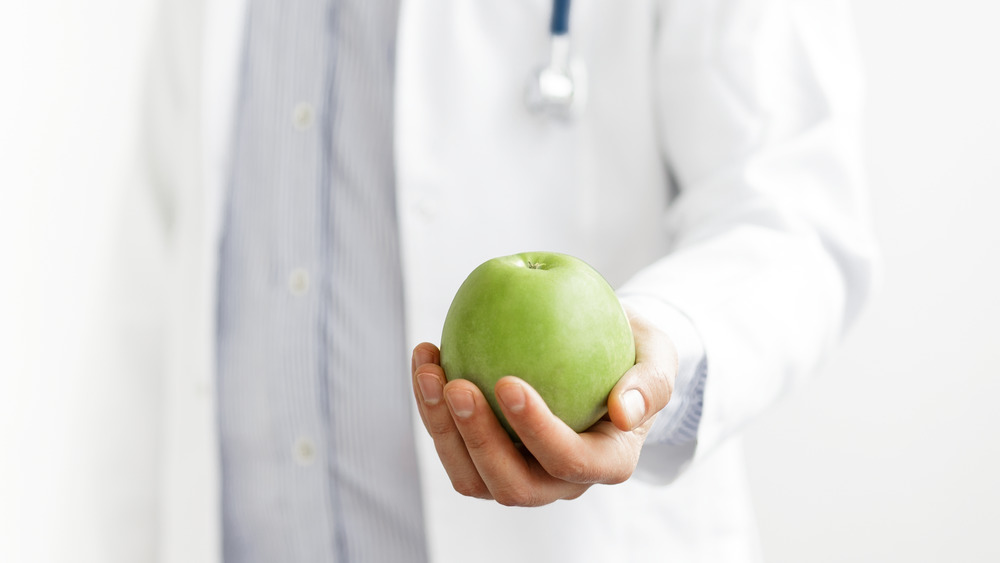The Controversial Opinion Whole Foods' CEO Has About Health Insurance
While Whole Foods may be a business seemingly tailor-made to cater to well-heeled hippies, what with its focus on everything organic and all-natural, it seems the company's politics aren't nearly as green as we may have imagined. Not only did Fast Company determine that the vast majority of Whole Foods' products circa 2014 came from Republican-owned sources, but the Whole Foods CEO himself recently went on record to say that private enterprise is the best thing since whole-grain sliced bread. In a speech made to the American Enterprise Institute (via Newsweek), John Mackey called capitalism "the greatest thing humanity's ever done."
This remark, however, isn't the most eyebrow-raising thing Mackey's come out with lately. He also told Freakonomics Radio host Stephen Dubner (via CNBC) that when it comes to determining the best approach to our nation's health insurance issues, "The best solution is not to need health care." Instead of getting medical treatment, he thinks we need to "change the way people eat, the way they live, the lifestyle, and diet," since he feels that "a bunch of drugs is not going to solve the problem." Mackey's actually espoused this idea for over a decade, having written a 2009 piece for the Wall Street Journal proposing it as an alternative to the Affordable Care Act. His anti-healthcare stance didn't fly at the time, and in fact, caused some shoppers to boycott the company. Chances are, his 2020 reboot's not going to gain too many supporters now, either.
The problem with Mackey's plan
While improved nutrition can certainly have a positive impact on overall health, a better diet alone won't cure everything that's wrong with you, nor does it have the power to prevent you from becoming ill, much less injured. Nadereh Pourat, director of the Health Economics and Evaluation Research Program at UCLA's Center for Health Policy Research, told CNBC Make It that "there are other factors that lead to disease and determine the need for health care, such as genetics, adverse life events, exposure to chemicals, etc." An obvious example of an adverse circumstance, and one that makes Mackey's recent remarks seem particularly ill-timed, is the COVID-19 pandemic. The disease is caused by exposure to SARS-CoV-2, not by poor eating habits, and while clean eating may help boost your immunity, it can't make you virus-proof.
Yes, we should all do the best we can to eat right, whether or not we can afford to pay Whole Foods' prices. We should also try to get enough sleep, get some exercise, stay calm and stress-free - all that good stuff. Nevertheless, as Pourat says, we as a nation still deserve to have "a capable and effective health care system that can provide services to screen for disease or risk factors (e.g., cancer screening), provide preventive services (e.g., flu shots), and provide treatment when needed." After all, there's simply no apple, no matter how sustainably-sourced, organically-grown, and pesticide-free, that truly has the ability to keep the doctor away.

